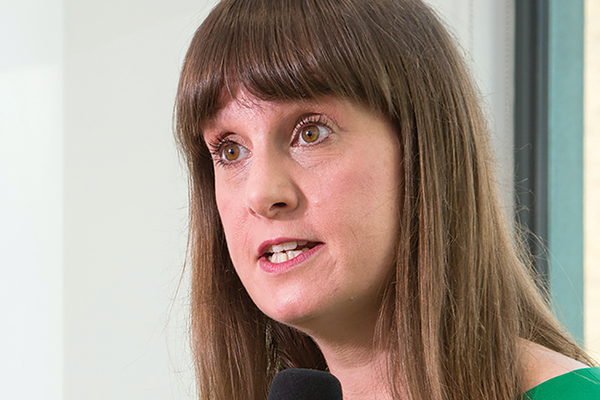You are viewing 1 of your 1 free articles
The year ahead: what’s on the radar for housing in 2019?
Inside Housing’s news team look at what should be on the sector’s radar as 2019 gets underway
KEY EVENTS
Grenfell Inquiry
The second half of 2018 saw nearly 90 days of evidence in the first phase of the Grenfell Tower Inquiry. Judge Sir Martin Moore-Bick has promised a report on this phase “as soon as possible” and will consider publishing a formal list of interim recommendations alongside it. Given the evidence so far, his comments on the ‘stay put’ advice to residents in particular will be of critical relevance to managers of tower blocks everywhere.
Right to Buy pilot
In August, ministers launched the long-awaited regional pilot of the Right to Buy for housing association tenants across the Midlands. Around 6,000 people successfully entered the ballot to buy homes at a discount, and will now be in the process of trying to move ahead with their purchase.
Under the rules of the game, they will need to be completed by spring 2020 so this year will be busy for associations in the pilot. The ‘portability’ aspect of the policy will be key – that is the right for some tenants to use their Right to Buy discount on another housing association property if their home is exempt from the scheme.
Gender pay reporting
Last year, the need to report median figures for male and female pay led to housing associations revealing stark (although not unusual) differences between the genders. This led to many pledges of action, and all eyes will be on the numbers when they are published in April to see what progress has been made. This taps into an ongoing drive for better diversity and representation in the sector, which will continue this year.
Universal Credit – managed migration
The coming year will see Universal Credit move to an even more complex stage: ‘managed migration’ – the movement of claimants on the old benefit system to Universal Credit. This will start tentatively, with no more than 10,000 claimants moved over from July onwards. However, there is widespread concern about the plans – not least with regard to the ‘hard stop’ provision, which means that benefits will be stopped outright if a new claim is not submitted within three months.
Green paper and Hackitt Review implementation
A consultation on the Social Housing Green Paper closed in November, and a government response is expected fairly early this year.
Further detail on the timeline for introducing the English regulator’s enhanced role in consumer affairs and ‘league tables’ for social landlords will intrigue, as will further detail on the less developed ideas.
At the end of 2018, the government also announced it would implement in full the recommendations of Dame Judith Hackitt’s review of building regulations – these will impose tougher duties on the managers of tower blocks and will have major implications for social landlords with tall buildings in their stock. This does not have a hard timetable yet and will require legislation.
Council development
With the freedom to borrow granted in 2018, councils will be keen to crank up the development of new homes in 2019.
A hiring drive will likely take place as they build the in-house capacity to carry out development, although those with projects and plans in place will likely start major schemes throughout the year.
Brexit
Less the elephant in the room, more the rampaging herd about to trample all over the entire house. Sector figures are fretting about local economic impacts, the implications for raising finance, the shape of a future political landscape, building materials, labour and the impact on the property market. There is little that can be ruled out and there are – assuming no delays – just 11 weeks until the scheduled departure.
Risk mitigation and stress-testing are the watchwords for the first months of the year.
THE OPERATING ENVIRONMENT
Financial climate
By Luke Barratt, finance reporter
Brexit will loom even larger for finance directors as the year begins. Already, we have seen social landlords seeking to raise extra cash in the lead-up to 29 March.
Some associations may continue to do this in the first months of the year but activity is likely to drop off significantly as the deadline gets closer. Should finance need to be raised in this period, nervy investors could see the cost of borrowing rise.
The post-Brexit effects on social housing finance are, of course, near impossible to predict. The current political situation could yield anything from a no-deal Brexit, to a general election, to a second referendum, or to no Brexit whatsoever.
With that in mind, associations remain in an uncertain period, waiting to see what will happen. If Brexit is delayed, this uncertainty will continue.
Meanwhile, the interest from private equity companies and listed funds in social housing has not abated. These companies do not have the same financial constraints as traditional providers of social housing, and 2019 should see more of this interest crystallise into specific plans.
Aggregator MORHomes is seeking to raise a large chunk of finance through its first bond early in the year – and could provide a test of the market should it go ahead, or a sign of the extent of the uncertainty if it decides to delay.
The political climate
By Peter Apps, news editor
In England, 2018 was a year of positive policy announcements for the sector, with strategic partnerships and the borrowing cap axe warmly welcomed by housing associations and councils respectively.
'In 2019, we enter a new phase: the government has made it clear that it expects a measurable return on its investment in the sector and warm rhetoric could swiftly cool if it does not see the numbers it expects. League tables and tougher regulation link to the desire to see tenant
engagement improve post Grenfell.
As ever, the shadow of Brexit looms large and it is entirely possible that either a hard Brexiteer or Jeremy Corbyn may walk into Number 10 before the year is out. Theresa May has wielded a large personal influence on housing policy, and her departure would mark a change of direction.
In Wales, a new rent settlement upset the apple cart somewhat in late 2018 and the sector now waits nervously to see what a new first minister and housing minister will offer. In Scotland, the government comes under increasing pressure to hit its target of 50,000 affordable homes by 2021 and will demand more from the sector as the year goes on. In Northern Ireland, the need for a new government is increasingly urgent and fears of direct rule from Westminster mount.
The development climate
By Jack Simpson, deputy news editor
Last year laid the foundations for associations to increase their delivery ambitions, with the creation of Homes England and its strategic partnerships roll-out. This year puts the ambitions to the test.
January is likely to see the third wave of partners revealed, and Homes England’s focus move to ensuring these associations live up to their commitments. But with Brexit, these promises are under threat. Associations have already told Inside Housing a downturn could see delivery numbers hit.
There will be even harder lobbying by associations for more grant if Brexit hits market profits. If private house builders’ delivery slows, the government may feel it has little choice but to comply. Expect to see associations become flexible with tenure splits. Many have already set out contingency that would see planned market sale homes switched to market rent in a bid to shield themselves.
Private house builders are also likely to offer more of their properties at cut-price values as they look to secure sales ahead of the March exit.
Competition for land and expertise will be fierce throughout the year, with local authorities forming their own development plans following the scrapping of the borrowing cap. While some councils will want to go it alone, 2019 promises to see more long-term partnerships being struck between councils and associations.
KEY PLAYERS
Kate Henderson
The new chief executive of the National Housing Federation has begun her tenure by pushing the government to do more on land value capture.
Lobbying may prove to be a key part of her role this year – if the sector finds itself as one of many competing voices for support in a recessionary post-Brexit environment. Given the political turbulence, Ms Henderson’s ability to impress the sector’s case on potentially sceptical new faces may also be put to the test.
Nick Walkley
The top dog at Homes England had a busy 2018, and will remain an extremely important figure within government in 2019.
As politicians squabble over Brexit, Mr Walkley’s influence as a key civil servant will be crucial in maintaining the case for new affordable homes and the money to build them.
Polly Neate
Reversing the trend of rising homelessness is already a huge domestic political priority and will only become more so as the rough sleeping crisis becomes more visible.
Shelter published its Housing Commission report this week, and Ms Neate, its chief executive, will be well placed to provide the answers political leaders seek.
Simon Dow
The interim chair of the English regulator has many years’ experience in the housing sector and must now meet the challenge of helping to craft the regulator’s role in a way that works for housing associations, as well as meeting the new demand for sharper teeth and intervention on tenant affairs.



















